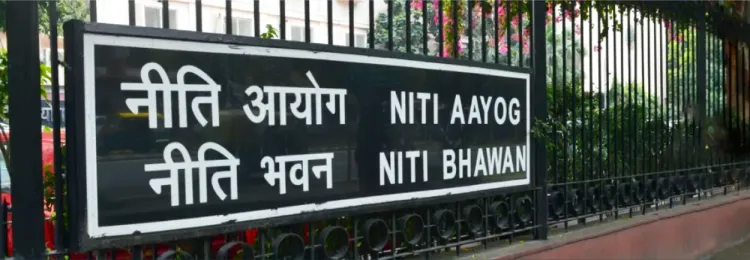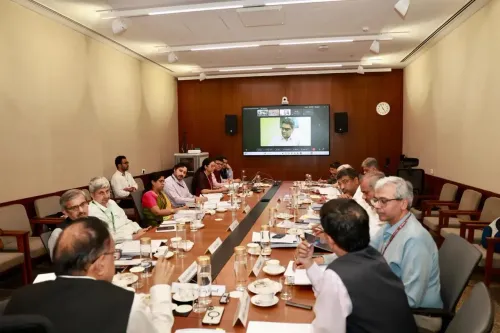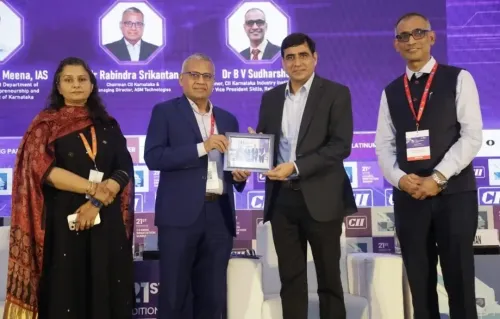Is India Ready for a Tax Transformation?

Synopsis
Key Takeaways
- Focus on simplification of tax laws.
- Introduction of trust-based governance in tax administration.
- Proposed decriminalization of minor infractions.
- Enhancement of civil penalties over criminal sanctions.
- Boost in investor confidence through predictable tax regime.
New Delhi, Oct 10 (NationPress) India’s tax reforms are entering a pivotal stage characterized by simplification, modernisation, and the integration of trust into tax administration, stated BVR Subrahmanyam, CEO of NITI Aayog, on Friday.
He highlighted that “as India shifts from enforcement-driven compliance to trust-based governance, the emphasis needs to be on proportionate, fair, and transparent enforcement mechanisms that empower taxpayers while safeguarding fiscal integrity.
NITI Aayog's second working paper in the NITI Tax Policy Working Paper Series–II, titled “Towards India’s Tax Transformation: Decriminalisation and Trust-Based Governance,” was released on Friday.
This follows the initial paper in the series, “Enhancing Certainty, Transparency, and Uniformity in Permanent Establishment and Profit Attribution for Foreign Investors in India,” which was released earlier.
The working paper provides a thorough evaluation of the criminal provisions under the Income-tax Act, 2025, scrutinizing their necessity, proportionality, and alignment with the government’s larger reform agenda.
It suggests a principle-based framework to rationalize penalties, decriminalize minor and procedural non-compliances, and bolster judicial discretion.
NITI Aayog indicates that while the 2025 Act omits several outdated offences, it still criminalizes 35 actions and omissions across 13 provisions, most of which mandate imprisonment.
The report advocates for a measured decriminalization strategy—eliminating imprisonment for minor procedural defaults, confining criminal sanctions to cases of fraud or willful evasion, and enhancing civil and administrative penalties.
According to Subrahmanyam, these reforms are expected to reduce litigation, boost investor confidence, and further India’s commitment to a fair and predictable tax regime that aligns with global best practices.
Embedding trust at the heart of tax governance will fortify voluntary compliance, optimize enforcement resources, and support India’s ambition of becoming a globally competitive, high-trust economy.
The event was attended by representatives from CBDT, CBIC, ICAI, DPIIT, and leading tax experts who collaborated closely with the NITI Aayog Consultative Group on Tax Policy (CGTP) led by Dr. PS Puniha, Distinguished Fellow at NITI Aayog, and Sanjeet Singh, Programme Director at NITI Aayog.









